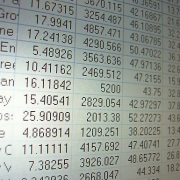Ceasing coverage: SDI Ltd
The Victorian-based family business reported a strong first half, assisted by a low Australian dollar and silver price. The dental products manufacturer has been investing in research and development to serve global dental product markets that are moving away from traditional Amalgam fillings to new higher quality products such as glass ionomer and composite products.
Including currency benefits, revenue was up 9.6 per cent to $34.7 million, and net profit was up 10 per cent to $3m. Profit before tax included $0.6m of one-off restructuring costs and IP write downs. On an underlying basis after removing the one-offs, profit before tax was up 24.4 per cent.
It has long been known that Amalgam is on the way out, and in recent years the rate of decline appears to be increasing. Currently 36 per cent of SDI sales are Amalgam, with a decline of 3.1 per cent in the first half. SDI has been investing for in the new products that the market is moving towards for the past 15 years. Although the company is also up against many large competitors who are investing in new products, SDI appears to be gaining traction. This is evidenced by the 25 per cent growth in Glass ionomer sales, 15 per cent growth in Composite sales and 29 per cent growth in Whitening products.
SDI has a market cap of approximately $64m at $0.55, and the company has spent approximately $30m on new product R D and acquisitions of IP over the past 15 years. Just what return the company is able to achieve on this investment and how much ongoing investment is required are key uncertainties that will play a big part in the success of the company.
Although at the group level costs have increased, it appears that there is a trend of increased gross margins given that a greater proportion of sales are the new higher quality products. But at the same time, there are also greater sales and marketing expenses as the company attempts to transition away from Amalgam as smoothly as possible.
Ninety per cent of sales are exported overseas to a wide range of markets. When analysing the performance in each region we can see some wide variances, partly due to currency movements and also local market dynamics. In Australia local sales were up 6.1 per cent, with the market rapidly transitioning away from Amalgam.
The key export markets are North America, Latin America, Africa, Asia and the Middle East. In local currency terms North American sales declined 10.2 per cent. This is a combination if the decline in Amalgam, a more price competitive market, and the lack of sales training on SDI's new products. Improvement is expected over the next year, as management has recently increased this investment in sales staff training.
A restructure of European operations is starting to pay off, with an 11.9 per cent increase in local currency terms.
Brazil saw an 18.1 per cent increase in local currency sales, but the large devaluation of the Brazilian Real (BRL) had adverse effects on the division. Brazil is a strategically important location for SDI with the view it can sell into other South American markets. In local currency terms the location has been growing for a couple of years now, but unfortunately currency movements have outweighed much of this growth.
Cashflow conversion was poor, but with earnings usually weighted to the second half this maybe improved for the full year. This view is supported by the fact that the weak operating cashflow was partly due to an inventory build-up. The interim dividend was doubled on last year to 0.8 cents.
The other major factor to consider with SDI is the family business structure, with the Cheethams holding many of the key positions. JExecutive Chairman and Joint MD Jeffrey Cheetham will be stepping down from the Joint MD position as of July 1, with the long planned succession of daughter Samantha Cheetham coming into effect as she takes the role of sole managing director. The salaries of many of the key executives are not in line with similar size companies. Currently Jeff Cheetham has a base salary of $670,000, and Samantha $500k. The family are large shareholders as well. It has been argued in the past that the family business has slowed potential growth, but the transition from July 1 gives the opportunity for a fresh start.
SDI is not expensive, trading on a FY16 PE of 8.5. But the company has had a chequered past that has included many swings in earnings partly from factors out of management control. With the silver price declining significantly over the past three years the company has had a major tailwind that has boosted earnings. Although the silver input product will have a reduced influence going forward due to the decline in Amalgam sales, it remains a key risk for the next couple of years at least. Other key risks will be management's ability to produce steady growth in key overseas locations rather than the patchy growth of past years. Further there will be constant competitive pressure to invest in new products. With many larger companies also investing in these products, it will be an impressive achievement if SDI can continue to improve on the early growth of Glass Ionomer and Composites.
Our $0.64 valuation includes conservative assumptions given the history of earnings swings, and impacts from currency and the silver price. If SDI can provide evidence that it is on a sustainable growth path as it seeks to replace Amalgam with new high value products, then there is material upside from the current $0.55 share price. We have a hold recommendation, but are ceasing coverage due to lack of visibility on future growth.
















